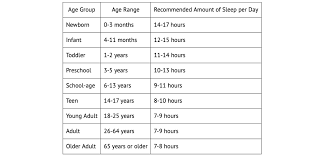The Impact of Social Media on Depression
Social media has become an integral part of our daily lives, allowing us to connect with others, share moments, and stay informed. However, the rise of social media has also brought about concerns regarding its impact on mental health, particularly in relation to depression.
Research suggests that excessive use of social media can contribute to feelings of loneliness, inadequacy, and low self-esteem, which are all factors that can lead to or exacerbate depression. The constant exposure to curated and often unrealistic portrayals of others’ lives on social media platforms can create a distorted perception of reality and trigger negative emotions.
Moreover, the phenomenon of social comparison on platforms like Instagram and Facebook can fuel feelings of envy and dissatisfaction with one’s own life. People may feel pressured to present an idealized version of themselves online, leading to a sense of inauthenticity and disconnection from their true selves.
Another aspect that links social media to depression is the potential for cyberbullying and online harassment. The anonymity provided by the internet can embolden individuals to engage in hurtful behavior towards others, causing emotional distress and psychological harm.
It is essential for individuals to be mindful of their social media usage and its impact on their mental well-being. Setting boundaries around screen time, curating a positive online environment by following accounts that promote mental health awareness, and engaging in real-life interactions are some strategies that can help mitigate the negative effects of social media on depression.
Additionally, seeking professional help from therapists or counselors is crucial for those experiencing symptoms of depression exacerbated by social media use. Remember that it is okay to take breaks from social media if it becomes overwhelming or detrimental to your mental health.
Ultimately, while social media offers numerous benefits in terms of connectivity and information sharing, it is important to approach its usage mindfully and prioritize mental health above all else.
6 Essential Tips for Managing Social Media Use to Support Mental Health
- Limit your time on social media to reduce comparison and negative feelings.
- Follow accounts that promote positivity and mental well-being.
- Engage in real-life social interactions to balance online connections.
- Be mindful of the content you consume and its impact on your mood.
- Seek professional help if you feel overwhelmed or experience symptoms of depression.
- Take breaks from social media to focus on self-care and mental health.
Limit your time on social media to reduce comparison and negative feelings.
Limiting your time on social media can be a helpful strategy to reduce feelings of comparison and negativity that may contribute to depression. By setting boundaries around your usage, you can minimize exposure to idealized portrayals of others’ lives and create space for more meaningful offline interactions. Taking breaks from social media allows you to focus on your own well-being and cultivate a healthier relationship with technology, promoting a more balanced perspective and improved mental health overall.
Follow accounts that promote positivity and mental well-being.
By following accounts that promote positivity and mental well-being on social media, individuals can cultivate a supportive online environment that fosters emotional resilience and self-care. Engaging with uplifting content, inspirational quotes, and practical tips for maintaining mental health can serve as a daily dose of encouragement and motivation. These accounts can offer valuable insights, resources, and strategies for coping with stress, anxiety, and depression, empowering individuals to prioritize their well-being in the digital realm.
Engage in real-life social interactions to balance online connections.
To counter the potential negative impact of social media on mental health, it is advisable to prioritize real-life social interactions alongside online connections. Engaging in face-to-face interactions with friends, family, and community members can provide a sense of genuine connection, support, and belonging that may be lacking in the digital realm. Building and nurturing meaningful relationships offline can help balance the often superficial nature of online interactions, fostering a sense of emotional well-being and reducing feelings of isolation or inadequacy that may contribute to depression.
Be mindful of the content you consume and its impact on your mood.
It is crucial to be mindful of the content you consume on social media and how it affects your mood. Constantly exposing yourself to negative or triggering content can significantly impact your mental well-being, potentially exacerbating feelings of depression and anxiety. By actively choosing to engage with positive and uplifting content while limiting exposure to harmful or distressing material, you can take control of your online environment and prioritize your emotional health. Remember, what you consume online has the power to influence your mood, so choose wisely for a more positive digital experience.
Seek professional help if you feel overwhelmed or experience symptoms of depression.
It is crucial to prioritize your mental well-being, especially when using social media. If you find yourself feeling overwhelmed or noticing symptoms of depression, seeking professional help is essential. A trained therapist or counselor can provide the necessary support and guidance to help you navigate through these challenges and develop coping strategies. Remember, reaching out for help is a sign of strength, and taking proactive steps towards your mental health is a valuable investment in yourself.
Take breaks from social media to focus on self-care and mental health.
Taking breaks from social media is an essential self-care practice that can significantly benefit mental health. By stepping away from the constant stream of information and comparison on social platforms, individuals can create space for relaxation, introspection, and genuine connection with themselves and others. These breaks allow time for activities that promote well-being, such as exercise, mindfulness, hobbies, or spending quality time with loved ones. Prioritizing mental health through periods of digital detox can help reduce stress, improve mood, and cultivate a healthier relationship with technology and oneself.


